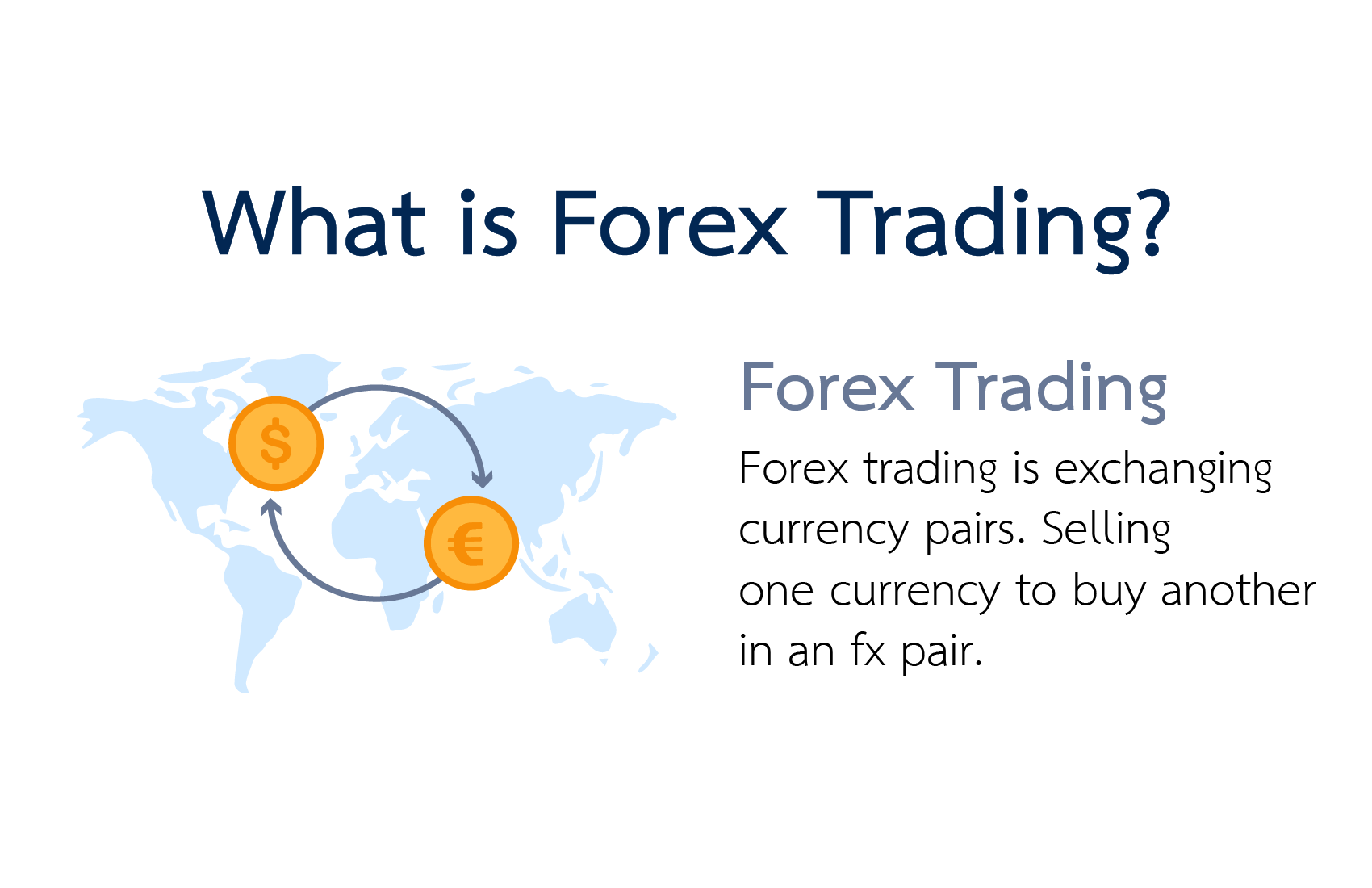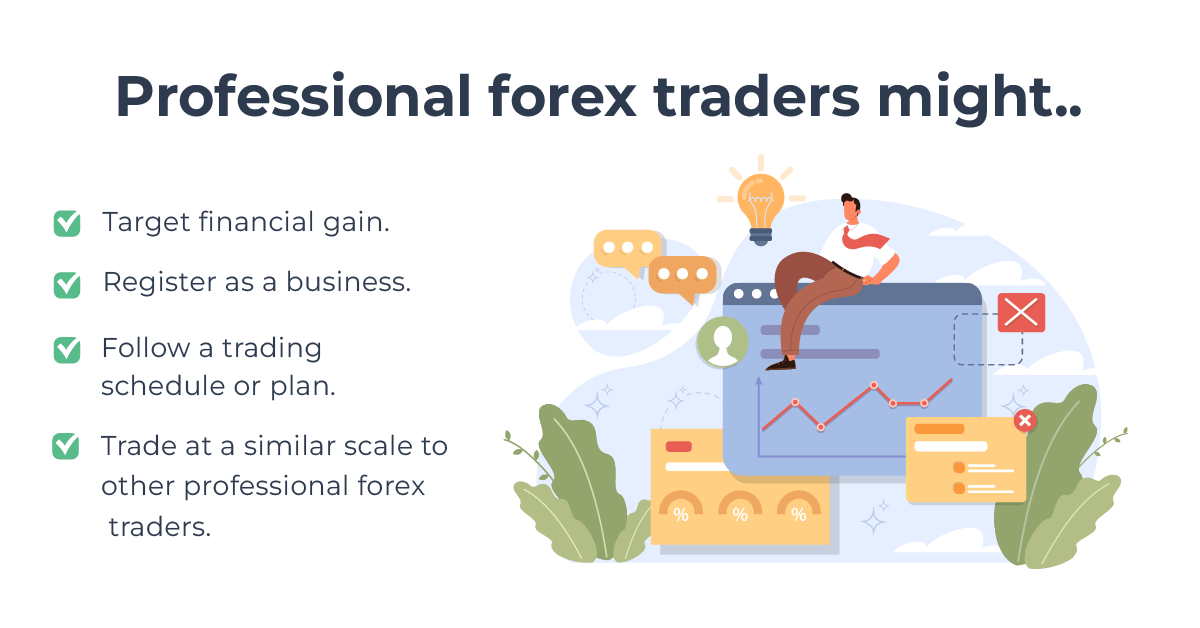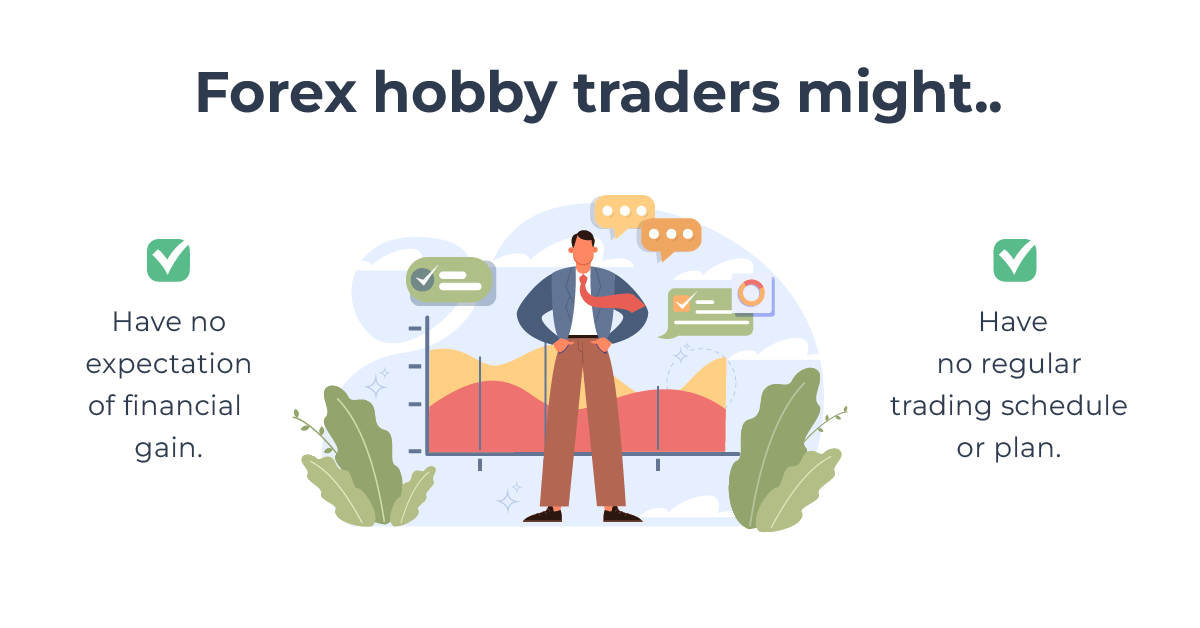Accounting for Forex Trading: Professional vs. Hobby Status
TaxForex trading profits are usually taxable, but the ATO makes a distinction between professional and casual hobby forex traders. Find out what this means for accounting.

Disclaimer: The information in the blog does not constitute financial or tax advice of any kind.
Trading in the forex market carries risk, but with those risks come potential rewards. Plenty of traders lose money, but plenty make money as well. Some make quite a lot of money, after researching the markets, growing their expertise, and developing a sustainable trading strategy.
The Australian Tax Office (ATO) typically defines these traders as professionals. They may have other jobs or income sources, but they conduct activities in a ‘businesslike’ manner and work hard to be profitable. If they do make a profit, this must be accounted for and will be taxed. But they may be able to offset any trading losses.
Other traders operate differently. They might place a trade here and there, just for fun. They might win or they might lose, but they aren’t behaving in the same ‘professional’ way discussed above. From the ATO’s point of view, they could be considered casual hobbyists and may not always be taxed.
But where do we draw the line between professional and casual hobby traders?
Understanding Forex Trading
Forex trading is simply the practice of speculating on currency values. You don’t invest in the currency directly. Instead, you open a position based on the relative price movements of two currencies in a pair. Like the Euro and the US Dollar in the EUR/USD pair.
Traders predict which way they think the relative value will move, and gain a profit if this prediction turns out to be correct. If it’s incorrect, the trader makes a loss.
CompareForexBrokers found Justin Grossbard offers some insight into forex trading and tax:
“Like with any other form of income in Australia, forex profits are taxable,” Justin says.
“However, under some very particular circumstances, the ATO treats forex CFD trading as a form of gambling. These circumstances distinguish professional from casual traders and whether you will need to pay taxes.”

Defining Professional Forex Traders and Casual Hobbyists
How does the ATO define these two types of traders?
Professional Forex Trading
Generally, forex trading would be considered professional if any of the following applies:
-
The trader hopes to make a financial gain, over a short or long-term period.
-
The trader has registered as a business, with an ABN and an official business name.
-
The trader has a regular schedule of market activity or a trading plan.
-
The trader is acting at a similar scale to other trading professionals.
Many of these definitions can quite easily apply to forex trading. Most traders are out to make a profit, for example, and will typically trade regularly.
Most traders won’t register a business name, but they may complete other actions similar to business owners. The best forex brokers in Australia offer analytics and trade scheduling tools. Using these tools may be considered a professional activity.
There’s also the scale to consider. Forex traders typically act alone, so an individual trader would still operate at a similar scale to industry professionals.

Hobby Forex Trading
While it’s possible for forex trading to be considered a hobby, in real-world scenarios this is highly uncommon. The Australian Taxation Office (ATO) only recognises hobby status when the trading activity clearly lacks commercial intent.
To be treated as a hobby and not subject to tax, a trader must meet all of the following:
-
There is no expectation of making a financial gain, either short or long term.
-
Trades are made sporadically, with no pattern, planning, or strategy.
-
There is no structured activity resembling a business such as tracking trades, analysing markets, or using trading tools.
For example, someone who places a single trade out of curiosity, with no plan to continue, and no interest in profit, might technically fall under this category.
However, most individuals trading forex (even just occasionally) do so with the hope of earning income. They might use online platforms, follow exchange rate trends, or set up alerts and watchlists. These behaviours, while casual on the surface, often demonstrate an underlying commercial motivation which places them firmly in the taxable category.

Deciding Which Designation Applies
The distinction between professional and hobby trading is not always immediately apparent, but the burden of proof lies with the trader. If there’s any sign that the trading activity involves planning, repetition, or a desire for financial return, the ATO will likely classify it as professional.
This means that in the majority of cases, forex trading will be subject to tax, even if done part-time or alongside other work.
As Justin Grossbard notes:
“In my experience, most forex trading is considered professional, so income will be taxable. The casual hobby definition might apply, but only in very specific circumstances. It’s important to speak to a professional to decide which definition applies. Tax law isn’t something to play around with.”
Ultimately, if you're placing trades (even infrequently) with the aim of benefiting financially, it's best to assume those activities are taxable under ATO rules.
Disclaimer: This information is general, and should not be considered tax advice. Contact a tax professional for advice or guidance.




